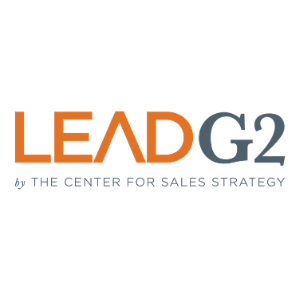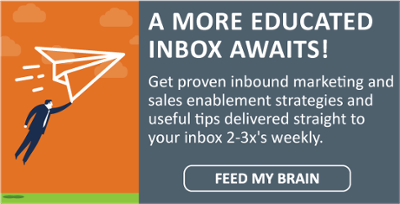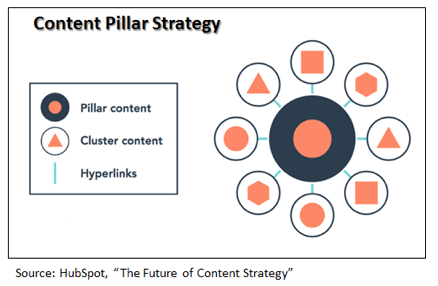“3 Critical Insights We Learned From Our Last 1,000 Audits”
My idea for this week’s blog post came from a flood.
Truth be told I wouldn’t have even known about the tank surrendering its watery cargo if my wife hadn’t come upstairs after laundry duty and accused our dog Damien of mistaking our green carpet for our lawn, which is buried under a foot or so of snow. So I trooped off, scowling, to do a cleanup. My first thought upon hearing the squish squish beneath my feet was , “Boy, I’ve got to stop giving the dog so much water”, followed by, “Boy, maybe I should have taken him out more”, to “Oh CRAP!!! The hot water tank blew!!!”
Fast forward: new hot water tank ... new carpet ... and a decision that it was time to clean out the basement from an accumulation of 20 years of paper. In the process, I ran across (and subsequently tossed) a winning proposal my team wrote for a public company audit many years ago, in a galaxy far, far away.
Looking at that proposal made me think about how incredibly different accounting firm marketing is becoming ... hey! There’s a blog post in that thought!
“Nobody Hires an Auditor Because of Marketing”
That was the conventional wisdom at the time that proposal was prepared.
Marketing an accounting firm’s audit services was based upon a mix of 99.9% 1:1 marketing (networking, schmoozing, trade associations, etc.) and .1% sales collateral, including using the internet as an online sales brochure.
OK, so I’m exaggerating a bit, but replacing an existing auditor required a long nurturing process followed by a competition built on a foundation of pricing angst. That’s till true – nobody hires a new auditor based on an impulse – but what’s changed is that more so than ever before, audits are becoming commodities and more than one audit partner has told me that today, prospects are only looking for lowest price.
Auditors have never been great fans of marketing or spending time, money and firm resources on marketing infrastructure and tactics. But if it’s true that audits are becoming price driven commodities, than auditors need marketers more than ever before for purposes of branding that creates differentiation, getting more visibility, bringing in leads, and nurturing those leads.
Today, these objectives need to be accomplished online, and built upon an inbound marketing strategy. That doesn’t mean that it’s time to abandon 1:1 marketing – its means that it’s time to stop being one dimensional when it comes to strategies and tactics for growing your audit practice.
“Nobody Searches Online for an Auditor”
As much as audit partners may want to believe this, it’s simply not true anymore.
Take a look at the keyword research I did earlier this morning. Not searching online, eh?
You need to move beyond 1:1 marketing and start inbounding. The principle of inbound marketing starts with driving prospects to your website using keywords, promotions through various digital assets, and then converting eyeballs who come to your site into a lead with an offer (more on this below).
Six Components of Inbound Marketing that Every CPA Firm Needs to Market Audit Services
Your online presence needs to be much more that merely an online brochure. That’s especially true because from a competitive perspective, it’s virtually impossible to distinguish the tone, language and positioning that firm’s use to market their audit services from one another. Here’s a simple exercise: if your competitor can basically use the exact same copy on their website as you use on yours (or vice versa) then you’ve effectively commoditized your audit services.
Is it time for you to be implementing an inbound marketing program? Here’s a list of six fundamental pieces that you’ll want in your marketing program:
Optimization
Work with your marketing department and web development team to define a set of keywords to begin the optimization process. Then, you’ll use these key words to publish web pages and for purposes of writing content for your thought leadership.
Here’s a tip for your optimization efforts: for each type of audit you do, write a separate web page. Today’s best practice is to publish one web page per accounting service, rather than have one page on audits that presents a laundry list of the different types of audits you do.
Thought Leadership/ Content
If there’s any one thing that will differentiate you and your firm from your competition, it’s going to be your thought leadership, published through a wide variety of content like blogs, articles, checklists, videos, podcasts and so on.
Today, search engines deliver their ranking based upon content that is useful and helpful to searchers. Your experience and expertise should be a goldmine for thought leadership, and the never ending changes to audit standards are rich fodder for showcasing your thinking about their meaning and impacts.
By the way, did you notice the freebie I gave you at the beginning of this blog? It’s a title you can use for a blog post or article, and I’m willing to bet one soaked carpet that you can write this post with one hand tied behind your back.
Responsive Website Design
Responsive website design basically means that your website is optimized for display on all types of mobile devices. How do you know if the audit sections on your site are responsive? Simply look at those pages on your mobile device.
If it looks bad, then that’s the type of experience you’re giving a visitor – bad. The stats on use of mobile devices are staggering, and you don’t want to look like you don’t care, or even worse, give someone a migraine because they have to read your 4 point font size and scroll for 40 minutes in order to read what’s probably nothing more than online sales collateral.
Lead Generation
Once you get a prospect to the website, it’s time to see if you can convert them to a lead using your thought leadership, published in the form of an offer tucked behind a landing page. Your offer needs to be a lot more than just a call to action to “click here if you’re looking for a new audit firm”.
Think about this: that call may not be the right message to the right person at the right time in the buying cycle.
For example, we’ve helped a number of clients develop and publish offers like a whitepaper on “The Ultimate Guide for Hiring a New Auditor” and “Demystifying the Audit for New Nonprofit Board Members”. These whitepapers are 90% non-advertorial and 10% advertorial, and are generating hundreds and hundreds of leads.
Automated Prospect Nurturing
Automated lead nurturing refers to the technology, process and infrastructure for moving a prospect though the sales funnel from lead to sales qualified lead to engagement. It basically involves delivering different types of content over time that becomes increasingly more advertorial as the prospect moves from gathering information to selecting a new audit firm.
However, marketing automation is not for beginners, and you may have some foundational marketing work to do before looking at this strategy.
Multi-dimensional Marketing of Your Firm’s Audit Services
I’m not recommending that you stop the 1:1 marketing of your firm’s audit services, and in fact, I’d be the first to agree that it’s likely going to be the way that you get the most opportunity to grow your audit practice. But today, that one dimensional marketing strategy isn’t sufficient to give you the differentiation, increase in visitors and growth in leads that you’re looking for.
It’s time to add inbound marketing to the mix of strategies and tactics that you’re using to marketing the firm’s audit services.
I’m glad to say that now, I’ve got a clean and dry basement. I’ve got rid of (no kidding) hundreds and hundreds of pounds of accumulated papers. My collection of sales chachkies is off to the landfill. I’ve parted ways with various plaques and other marketing award ephemera under the assumption that my children will be thankful for the effort after I, like ye olde hot heater, leave this mortal coil.
Now, it’s time for my wife to apologize to Damian.
.png)








Leave a Comment